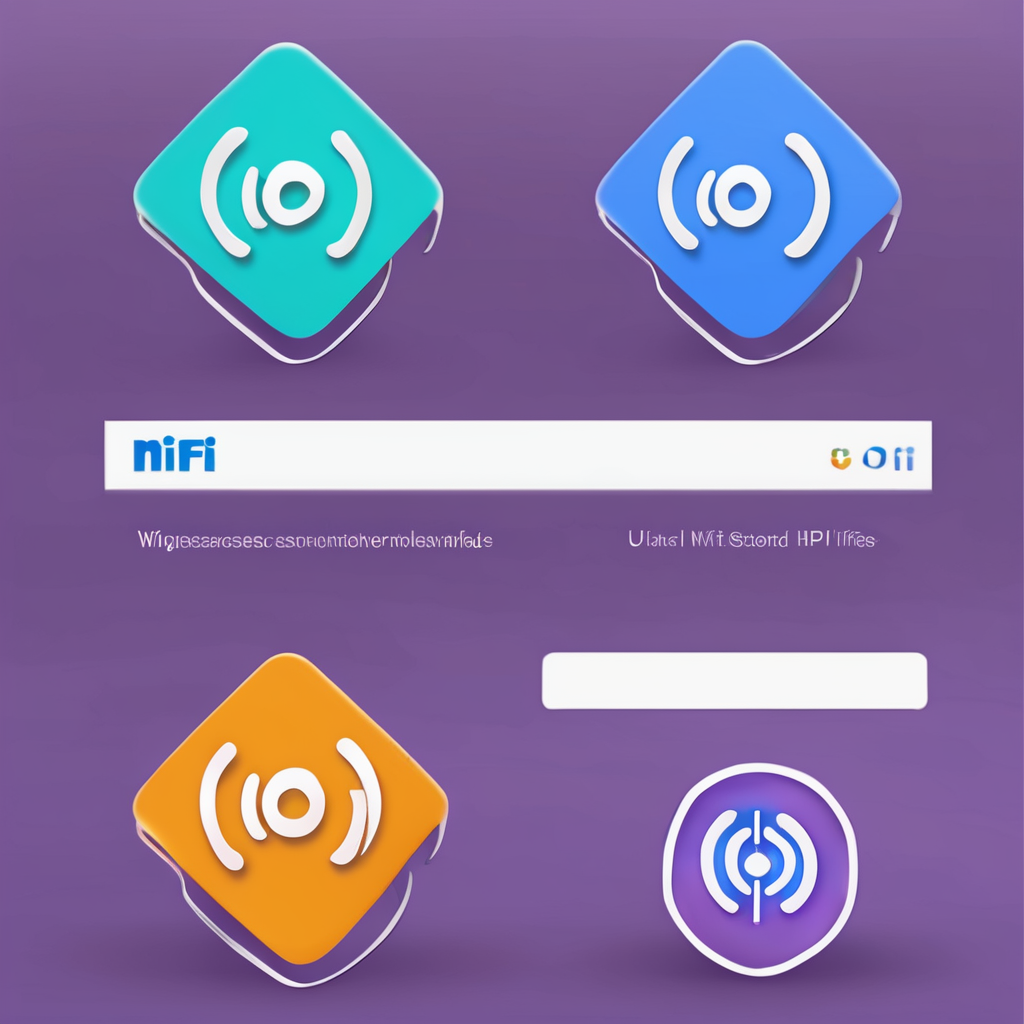How IoT Is Transforming Marketing Strategies in the UK
IoT marketing is reshaping how UK businesses connect with their customers. By embedding connected devices into daily operations, these companies leverage digital transformation to create immersive, data-driven experiences. Instead of relying solely on traditional marketing, UK businesses use IoT to capture real-time insights, enabling highly personalised outreach and improved engagement.
Key sectors like retail, healthcare, and finance are pioneers in adopting IoT marketing. For example, smart sensors in retail track customer movement and preferences, allowing brands to tailor offers instantly. This capacity for real-time data collection transforms customer journeys, offering unique experiences that adapt dynamically.
Also to see : How Can Emerging Technologies Revolutionize UK Marketing Strategies in Computing?
The core advantage of IoT lies in its ability to generate continuous, actionable data, enhancing personalisation far beyond static profiles. UK businesses implementing IoT marketing benefit from smarter segmentation, refining campaigns based on up-to-the-minute behavioural signals. This adaptability drives better conversions and strengthens customer loyalty, highlighting why IoT is central to the ongoing digital transformation in the UK marketing landscape.
How IoT Is Transforming Marketing Strategies in the UK
The evolving role of IoT in UK businesses is reshaping digital transformation at a rapid pace. UK companies increasingly incorporate IoT marketing to gather real-time data from connected devices, enabling personalised customer experiences that were previously unattainable. This transformation supports a shift from traditional, broad-based campaigns toward highly targeted, responsive marketing strategies.
In the same genre : How Can Trends in UK Computing Technology Innovate Marketing Strategies?
Key sectors actively leveraging IoT marketing include retail, automotive, and healthcare. Retailers deploy smart sensors to track in-store behaviour, tailoring promotions to individual consumer preferences instantly. Similarly, automotive brands use connected car data to deliver customised offers and aftersales services. This real-time responsiveness enhances customer engagement and loyalty by making marketing communications relevant and timely.
Personalisation powered by IoT data is a crucial catalyst driving adoption among UK businesses. By analysing behavioural patterns and environmental factors in real time, companies can segment audiences more effectively and optimise campaign outcomes. The combination of continuous feedback loops and granular insights simplifies decision-making and elevates brand relevance in competitive markets.
Ultimately, IoT marketing is not just about innovation but serves as a core enabler of digital transformation for UK businesses aiming to connect deeper with their customers and sustain growth.
UK Case Studies: Leading IoT Marketing Innovators
Delving into UK IoT innovations, several sectors showcase how IoT marketing reshapes customer engagement. In retail, smart stores utilize IoT sensors to monitor foot traffic and shopper behaviour. These systems enable targeted promotions based on real-time data, increasing conversion rates and customer satisfaction. For example, digital signage adjusts offers dynamically, reflecting immediate trends detected through IoT devices.
The automotive industry also embraces IoT marketing by connecting vehicles to collect driver preferences and maintenance data. UK businesses use this information for tailored outreach, offering personalised services like predictive maintenance reminders or customised insurance plans. This approach enhances brand loyalty and improves user experiences through timely, relevant communication.
Hospitality in the UK leverages IoT devices to craft personalised guest journeys. Smart room controls and wearable tech allow hotels to adjust lighting, temperature, and entertainment options to individual preferences. These integrations boost guest satisfaction and differentiate brands in a competitive market.
Across these case studies, IoT marketing empowers UK companies to move beyond static advertising. By harnessing continuous, real-time insights, they deliver more relevant content and foster stronger customer relationships. This practical application confirms IoT’s critical role in the evolving UK marketing landscape.
How IoT Is Transforming Marketing Strategies in the UK
IoT marketing is revolutionising how UK businesses approach digital transformation by embedding connected devices directly into customer interactions. This evolving role allows companies to harness real-time data that informs highly personalised marketing strategies, moving beyond static customer profiles to responsive, dynamic campaigns tailored to individual behaviour.
Key sectors leading this change include retail, automotive, and healthcare. For example, retailers employ smart sensors to monitor foot traffic and purchasing patterns, enabling immediate adjustments to offers and promotions. Automotive companies gather data from connected vehicles, such as driving habits and maintenance needs, to deliver timely, relevant communications that enhance customer engagement and loyalty.
The power of IoT lies in its ability to create continuous feedback loops, offering granular insights that help UK businesses refine audience segmentation and optimise marketing efforts. This data-driven personalisation accelerates the digital transformation journey by making campaigns more adaptive and effective in reaching consumers’ evolving needs. Consequently, IoT marketing is now a vital tool for UK companies aiming to deepen customer connections and maintain a competitive edge in rapidly changing markets.
How IoT Is Transforming Marketing Strategies in the UK
UK businesses increasingly harness IoT marketing to revolutionise their approach within the broader context of digital transformation. The evolving role of IoT facilitates continuous access to real-time data, enabling firms to craft personalised marketing campaigns that reflect immediate customer preferences and behaviours. This shift from generic messaging to targeted engagement lets companies respond swiftly to changing consumer dynamics.
Key sectors driving this change include retail, automotive, and healthcare, where IoT devices collect detailed consumer insights. For instance, UK retailers employ connected sensors to monitor shopper movement and preferences, supporting highly tailored and timely promotions. Similarly, automotive firms use in-vehicle data to personalise offers and maintenance alerts, increasing customer retention.
The primary catalyst for adopting IoT marketing is its ability to refine customer segmentation dynamically. Real-time analytics gleaned from IoT platforms empower UK businesses to optimise marketing efforts effectively. This results in improved campaign relevance, heightened customer engagement, and accelerates digital transformation goals by leveraging intelligent data streams instead of static profiles. Ultimately, IoT marketing empowers UK companies with actionable insights that drive strategic growth and competitive advantage.
How IoT Is Transforming Marketing Strategies in the UK
The evolving role of IoT marketing is central to the ongoing digital transformation in UK businesses. Companies increasingly rely on real-time data from connected devices to develop personalised marketing strategies that respond instantly to consumer behaviour. This dynamic approach surpasses traditional methods by using continuous data streams, enabling more precise customer segmentation and targeted messaging.
Key sectors in the UK leading this change include retail, automotive, and healthcare. Retailers adopt IoT solutions such as smart shelves and sensors to monitor shopper patterns, making offers more relevant and timely. Automotive businesses leverage connected car data to send customised maintenance alerts and promotional deals. Healthcare providers utilise IoT for tailored patient communication and improved service delivery.
Personalisation stands out as a critical catalyst for IoT adoption. By analysing behavioural signals and environmental factors in real time, UK businesses can adjust campaigns on the fly, boosting engagement and return on investment. This responsiveness helps marketers meet evolving customer expectations efficiently, which accelerates digital transformation efforts and solidifies IoT marketing as a vital strategy across the UK market.
How IoT Is Transforming Marketing Strategies in the UK
The evolving role of IoT in UK businesses is reshaping marketing by delivering unparalleled real-time data that fuels digital transformation. UK companies harness IoT marketing to gather continuous, granular insights from connected devices, enabling dynamic customer engagement beyond traditional static profiling. This shift allows for immediate response to changing consumer behaviour, enhancing personalisation and campaign relevance.
Key sectors such as retail, automotive, and healthcare lead this transformation. Retailers use IoT sensors to monitor in-store activities, adjusting promotions instantly to reflect shopper preferences. Automotive brands collect vehicle and driver data to provide tailored maintenance reminders and offers, creating seamless, data-driven outreach. Healthcare providers leverage IoT for real-time patient insights, enriching engagement and service delivery.
Real-time data acts as a catalyst by allowing UK businesses to segment audiences more precisely and adapt marketing activities swiftly. This capability accelerates digital transformation by making campaigns more agile, personalized, and effective. IoT marketing empowers UK companies to deepen customer relationships, optimise resource allocation, and maintain competitive advantage through smart, data-centric strategies.
How IoT Is Transforming Marketing Strategies in the UK
The rapidly evolving role of IoT marketing is pivotal for digital transformation among UK businesses. By embedding connected devices into customer touchpoints, companies capture real-time data, enabling responsive marketing that adjusts instantly to user behaviour. This approach supersedes traditional static profiling by providing continuous streams of actionable insights.
Notably, sectors such as retail, automotive, and healthcare are leading adopters. UK retailers use IoT sensors to analyse shopper movement and preferences, allowing dynamic promotions tailored for individual customers. Automotive companies leverage connected vehicle data to tailor maintenance alerts and personalised offers based on driving habits, heightening customer engagement. Meanwhile, healthcare providers employ IoT devices to customise patient communications with relevant, timely information.
This personalisation is a critical catalyst driving IoT adoption, as it enhances customer segmentation and campaign agility. Real-time analytics from IoT platforms empower UK businesses to optimise marketing strategies continuously, improving conversion rates and customer loyalty. In sum, by integrating IoT into marketing frameworks, UK companies accelerate their digital transformation goals and gain a competitive edge through data-driven, highly targeted outreach.



